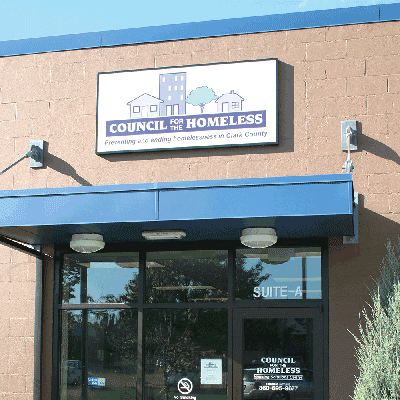One of the council’s services, The Housing Solutions Center, founded in March 2013, coordinates with 40 different housing programs and shelters, seven different agencies and operates the Housing Hotline (360.695.9677).
In their first year, hotline volunteers fielded 13,428 calls. They assessed 1,292 households, averaging families of five, and placed 498 households into partner housing programs.
“Sometimes we hear that there are so many organizations, people must be homeless by choice,” Silver said. “Just because we exist, doesn’t mean we have the capacity and resources to help everyone who comes to us.”
On one recent day, the council was aware of 32 families with children who had no place to sleep except a car, tent or other place with no water or electricity. On that day, the council and its partners were not able to help them.
Silver’s team often sees people who are actually employed, but cannot get approved for rentals. The Housing Navigation Program can get people past these barriers and into rentals that might work for them. However, current low-vacancy rental rates are a hurdle. Even when the council can coordinate help to pay rent, they often cannot find a landlord who will accept a family with past financial problems or a history of law troubles.
A current council initiative aims to solve this problem by working with partner organizations, landlords and property management companies to waive certain tenant risk requirements, while also protecting landlords.
Businesses who wish to help the Council for the Homeless can do so through several avenues. Providing council partner nonprofits with expertise such as IT, marketing or financial consulting can help streamline their practices, said Silver.. Direct volunteering and monetary donations are always appreciated as well.
“We want to get to root causes, not just the band-aid solutions,” said Silver. “In order for a homeless family to get back into stable housing, it will typically take assistance for several months, and that’s where community donations can make a big difference.”
Studies show people thrive best when they can get into housing first, then connect to jobs and health services, Silver said.
“As a community, we must all deal with this together and not judge that [the issue of homelessness] is being taken care of just because organizations exist,” he added.
{jathumbnail off}






